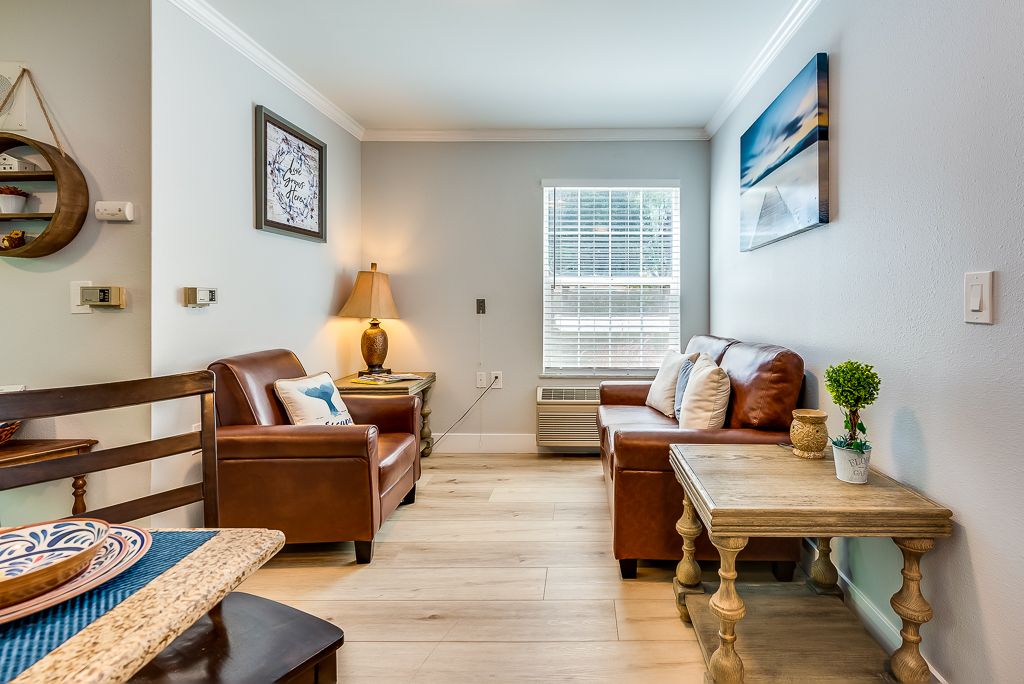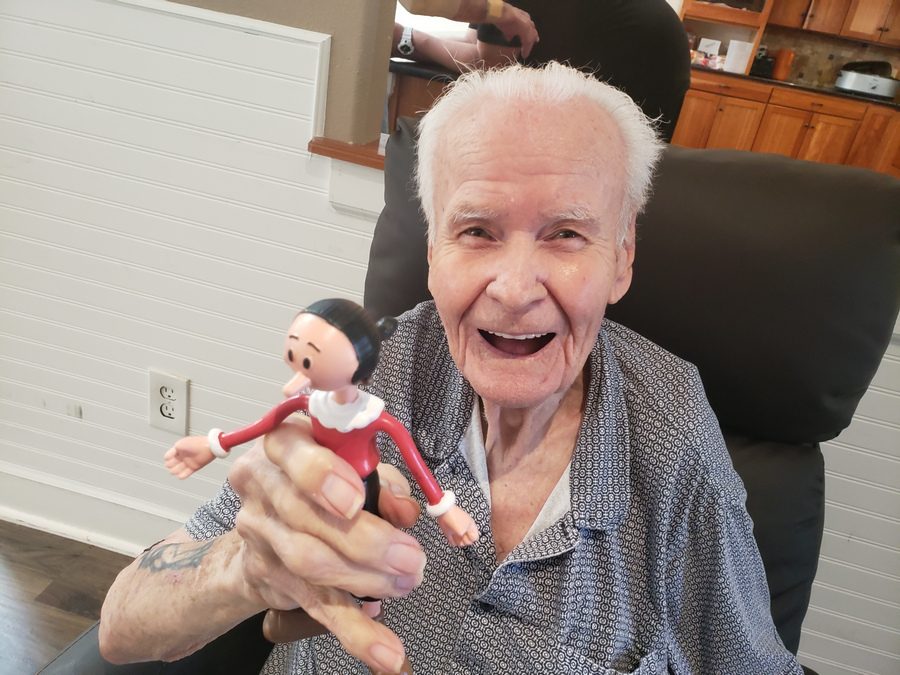Boutique Memory Care Environments That Nurture and Support
Boutique Memory Care Environments That Nurture and Support
Blog Article
All About Memory Treatment Solutions: Why Small Memory Care Residences Are an Excellent Selection
Memory treatment services play a crucial role in sustaining people with Alzheimer's and mental deterioration. Tiny memory care homes stick out for their customized method and intimate setting. With lower staff-to-resident ratios, these homes cultivate more powerful connections and tailored care. Residents benefit from improved social interactions and a safe setting. As families discover choices, comprehending the distinct advantages of little memory treatment homes ends up being crucial. What variables should be taken into consideration when picking the best home?
Recognizing Memory Care Solutions
While numerous may be familiar with general elderly treatment options, understanding memory care solutions is crucial for families facing the obstacles of cognitive decline. Memory treatment especially provides to individuals with problems such as Alzheimer's disease and various other forms of dementia. These services provide a structured atmosphere that concentrates on enhancing the lifestyle for locals via specialized care and support.Memory care centers are made to assure safety and safety and security, frequently featuring protected settings to avoid wandering. Educated employee are offered all the time to assist with daily tasks, medication management, and personal care. In addition, memory treatment programs commonly include cognitive excitement activities, tailored to engage homeowners and advertise psychological health. Families can benefit from comprehending these services, as they allow informed choices regarding their enjoyed ones' treatment, ensuring that their certain demands and preferences are addressed in a caring and helpful way.
The Advantages of Little Memory Care Residences
Little memory care homes provide distinctive advantages that can greatly boost the lifestyle for homeowners with cognitive problems. One significant advantage is the intimate setting, which enables for personalized communications among team and locals. This smaller setup promotes significant connections, decreasing sensations of seclusion and stress and anxiety often experienced by individuals with memory issues.Additionally, the lower staff-to-resident ratio in small memory treatment homes enables caregivers to offer more alert supervision and support. This technique not just improves security but also advertises a feeling of safety and security for the residents.Moreover, little memory care homes can adapt swiftly to the special requirements and preferences of each local, permitting for an extra homelike environment. Such a setting can motivate social engagement and involvement in activities, eventually enhancing the everyday experiences of those dealing with cognitive impairments.
Personalized Treatment Plans for Residents
Personalized care strategies are essential in memory treatment homes, as they accommodate the distinct requirements and choices of each citizen. These plans start with thorough evaluations conducted by experienced specialists, who assess cognitive capacities, case history, and personal rate of interests. This tailored approach assurances that care is not only efficient however likewise considerate of each person's self-respect and autonomy.Moreover, individualized treatment plans are flexible, enabling modifications as residents' requirements develop gradually. This versatility cultivates a complacency and experience, which is crucial for people coping with memory obstacles. Caretakers are trained to execute these plans constantly, supplying support that lines up with the locals' routines and preferences.Ultimately, personalized care strategies enhance the lifestyle for citizens by advertising self-reliance, wellness, and interaction, making them a basic aspect of memory care solutions in tiny memory care homes.
Producing a Home-Like Environment
Creating a home-like environment is crucial for fostering comfort and experience in memory care setups, as it substantially affects homeowners' psychological health. Little memory care homes frequently prioritize personalized touches, such as cozy color schemes, family members images, and acquainted furnishings setups, which aid citizens feel extra comfortable. Incorporating aspects similar to a traditional home, like comfortable home and common locations, encourages a sense of belonging.Moreover, using natural light and outside areas can enhance the atmosphere, promoting relaxation and tranquility. Employee play a considerable duty in preserving this atmosphere by involving with citizens in a compassionate fashion, treating them like household. Routine activities, such as food preparation or horticulture, can also add to a home-like feeling, offering opportunities for homeowners to join significant experiences. Overall, creating a nurturing environment supports cognitive function and psychological stability, making it a necessary element of memory care services.
Boosted Social Interaction and Community
Boosted social communication and area are crucial parts of memory treatment solutions. By cultivating personalized social engagement and developing a family-like ambience, these solutions promote meaningful links among locals. Group tasks and occasions better encourage involvement, assisting individuals feel much more included and supported.
Customized Social Involvement
While social interaction is explanation vital for general wellness, many individuals with memory impairments frequently battle to involve meaningfully with others. Individualized social engagement in memory care homes addresses this challenge by creating tailored activities that accommodate locals' special rate of interests and capabilities. By concentrating on individual preferences, caregivers can promote links that resonate deeply with each read review person. Activities such as art therapy, songs sessions, and directed discussions advertise cognitive excitement and psychological expression. Furthermore, small group setups motivate friendship and permit more intimate communications, enhancing feelings of belonging. This technique not only combats feelings of isolation however additionally empowers homeowners to maintain a sense of identification, ultimately contributing to improved psychological health and quality of life.
Family-like Ambience
In a memory care setup, cultivating a family-like ambience greatly improves social communication and builds a sense of community amongst locals. Smaller sized memory care homes commonly focus on intimate settings, permitting locals to develop closer connections with one an additional and team participants. This nurturing environment advertises count on, which is important for people with memory problems. Homeowners are more probable to involve in discussions and share experiences, producing a helpful network that reduces sensations of solitude. The knowledge of common areas and regimens adds to a feeling of belonging, even more urging social interaction (personalized memory care). In such settings, emotional bonds flourish, causing improved general well-being and a better of life for locals as they browse their day-to-day experiences with each other
Group Activities and Occasions

Safety And Security and Safety And Security Functions in Small Houses
Numerous tiny homes created for memory treatment include crucial safety and security functions to ensure the well-being of residents. These homes frequently use protected entrance and exit factors to prevent wandering, a typical issue among individuals with memory problems. In addition, surveillance systems and alarm systems enhance monitoring, making sure that personnel can promptly reply to any uncommon activities.Interior layouts are customized for security, with decreased hazards such as clutter-free paths and sharp corners. Handrails and non-slip flooring are typically installed to minimize the danger of drops. Team members are educated in emergency situation protocols, guaranteeing they are prepared for numerous situations.Moreover, customized treatment plans may consist of assessment of specific security needs, supplying tailored remedies for every homeowner. Generally, these safety and security and protection features create a nurturing environment where residents can flourish while preserving their self-respect and freedom.
How to Select the Right Memory Treatment Home
How can families guarantee they choose the most appropriate memory treatment home for their enjoyed ones? The decision requires cautious factor to consider of several variables. Initially, families need to evaluate the center's personnel credentials and training, making certain that caretakers are experienced in managing memory-related conditions. Next off, it's vital to examine the home's atmosphere, focusing on security features and whether it promotes a sense of community and belonging. Seeing the center can give understanding right into day-to-day tasks and the social ambience, which are vital for psychological stimulation and emotional well-being. Additionally, households need to ask about the treatment plans offered, guaranteeing they are customized to individual needs. Ultimately, taking into consideration the home's place and ease of access for family sees can add to a smoother shift. By addressing these facets, households can make an enlightened decision that prioritizes their loved one's comfort and lifestyle in a memory care setting.
Frequently Asked Inquiries
What Qualifications Should Team Members in Memory Care Residences Have?
Employee in memory treatment homes should have relevant certifications, experience in mental deterioration care, strong interaction skills, and empathy. Ongoing training in behavioral management and therapeutic treatments boosts their capability to support locals effectively.
How Do Memory Treatment Solutions Differ From Typical Assisted Living?
Memory care solutions concentrate particularly on individuals with memory impairments, giving customized support and organized settings. On the other hand, standard assisted living supplies basic support with day-to-day tasks, lacking the customized approach needed for those with cognitive difficulties.
What Sorts of Activities Are Used in Memory Care Houses?
Memory care homes commonly supply a range of tasks developed to involve residents. Usual alternatives consist of art treatment, songs sessions, cognitive video games, physical exercises, gardening, and social events, all focused on improving wellness and cognitive function.
Can Locals Bring Their Own Possessions to Memory Treatment Residences?
Locals can generally bring their very own possessions to memory treatment homes, permitting them to personalize their living area - personalized memory care. This technique aids develop an acquainted setting, advertising convenience and a feeling of identity for the individuals

How Are Member Of The Family Involved in the Treatment Refine?
Relative play a vital function in the care procedure, usually joining decision-making, going to treatment conferences, and giving psychological support. Their involvement promotes a collaborative setting, boosting the resident's overall well-being and lifestyle. While many might be familiar with basic senior treatment choices, recognizing memory treatment services is important for families dealing with the difficulties of cognitive decrease. These solutions provide a structured atmosphere that focuses on boosting the top quality of life for citizens through specialized care and support.Memory treatment facilities are created to ensure safety and security, often including secured settings to prevent roaming. Personalized treatment strategies are essential in memory treatment homes, as they provide to the distinct requirements and preferences of each resident. Team members in memory treatment homes ought to have relevant qualifications, experience in dementia care, solid communication skills, and compassion. Memory treatment solutions focus specifically on individuals with memory impairments, giving specialized assistance and structured atmospheres.
Report this page